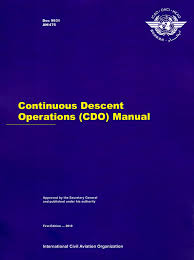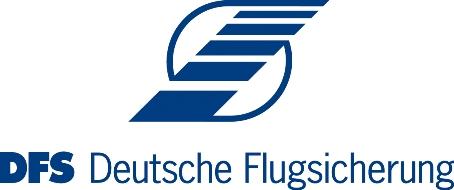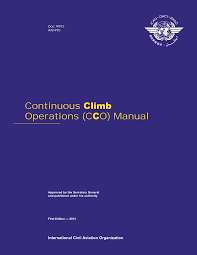Less noise, lower fuel consumption and reduced emissions – the new efficient flight profile (EFP) concept delivers a range of positive impacts. The EFP concept facilitates continuous descent operations. Such descents result in landings with lower fuel consumption and emissions when compared with standard approaches. It took a record time of only five weeks for DFS, the German air navigation service provider, and Lufthansa to develop the concept. The two companies took advantage of the decline in traffic caused by the corona pandemic, which opened up more opportunities for optimising flight profiles.
In April and May of this year, DFS, in cooperation with Lufthansa, developed and implemented a concept for more efficient flight profiles. The efficient flight profile (EFP) concept facilitates continuous descent operations, enabling landings with lower fuel consumption and emissions compared with standard approaches. These approach profiles also reduce noise pollution in the vicinity of airports.
Initial evaluations show that the Lufthansa Group alone has been able to reduce CO2 emissions by more than 2,000 tonnes per month since the introduction.

Thanks to the EFP concept, it is now possible to plan both laterally and vertically optimised flight routings for approaches to Frankfurt and Munich airports from distances of more than 200 nautical miles. Aircraft are cleared for a direct flight from upper airspace to the initial approach fix with a lead time of up to half an hour. The initial approach fix is the point from which aircraft start to land.
This procedure was only possible thanks to close coordination between the air navigation service providers involved. It can be set up to one week before the actual flight.
Another key to the success of the EFP concept is the high level of transparency between cockpit and air traffic controllers and the timely provision of information. Clearances are agreed at an early stage, thus enabling smooth approaches that avoid lateral and vertical corrections as far as possible.
The drastic decline in air traffic volumes triggered by the corona pandemic created the opportunity to optimise flight operations. The parties involved took advantage of this situation to develop the EFP concept, especially at the busiest airports in Germany, Frankfurt and Munich. These airports are normally too busy to offer leeway for such concepts. Thanks to their close cooperation, Lufthansa, DFS and all the partners involved in the aviation system developed, coordinated and established the new concept in the record time of only five weeks.
 Klaus Froese, CEO Lufthansa Hub Frankfurt, stresses: “We, working with air traffic control, took advantage of the low traffic volume to develop and introduce more optimised approach profiles – and we did all this within a few weeks. I am extremely confident that the new approach procedure will have its place in daily flight operations, even as traffic volumes increase.”
Klaus Froese, CEO Lufthansa Hub Frankfurt, stresses: “We, working with air traffic control, took advantage of the low traffic volume to develop and introduce more optimised approach profiles – and we did all this within a few weeks. I am extremely confident that the new approach procedure will have its place in daily flight operations, even as traffic volumes increase.”
Dirks Mahns, Chief Operating Officer (COO) at DFS, explains: “DFS sees itself as a service provider. In addition to our primary core task of ensuring the safety of air traffic, we also focus on meeting the needs of airspace users. Our common goal is to avoid or reduce the pollution associated with air transport as far as possible. The EFP concept is an excellent example of what two partners in the closely interconnected aviation system can achieve when they work in close cooperation with each other. We can be proud of the result. At the same time, it also motivates all of us to continue on this path of close partnership.”
 The DFS German Air Traffic Control GmbH is a federally owned company organized under private law with around 5,600 employees (as of June 30, 2020). DFS ensures a safe and punctual flight. Around 2,200 air traffic controllers guide up to 10,000 flights through German airspace every day, more than three million a year. This makes Germany the busiest country in Europe. The company operates control centres in Langen, Bremen, Karlsruhe and Munich as well as towers at the 16 international airports in Germany. The subsidiary DFS Aviation Services GmbH markets air traffic control-related products and services and is responsible for air traffic control at nine German regional airports as well as at London Gatwick and Edinburgh airports.
The DFS German Air Traffic Control GmbH is a federally owned company organized under private law with around 5,600 employees (as of June 30, 2020). DFS ensures a safe and punctual flight. Around 2,200 air traffic controllers guide up to 10,000 flights through German airspace every day, more than three million a year. This makes Germany the busiest country in Europe. The company operates control centres in Langen, Bremen, Karlsruhe and Munich as well as towers at the 16 international airports in Germany. The subsidiary DFS Aviation Services GmbH markets air traffic control-related products and services and is responsible for air traffic control at nine German regional airports as well as at London Gatwick and Edinburgh airports.

